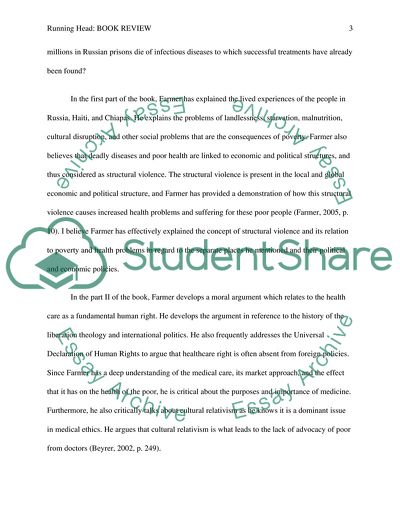Cite this document
(Critical Analysis of Pathologies of Power by Paul Farmer Book Report/Review, n.d.)
Critical Analysis of Pathologies of Power by Paul Farmer Book Report/Review. https://studentshare.org/anthropology/1808000-critical-review-paper
Critical Analysis of Pathologies of Power by Paul Farmer Book Report/Review. https://studentshare.org/anthropology/1808000-critical-review-paper
(Critical Analysis of Pathologies of Power by Paul Farmer Book Report/Review)
Critical Analysis of Pathologies of Power by Paul Farmer Book Report/Review. https://studentshare.org/anthropology/1808000-critical-review-paper.
Critical Analysis of Pathologies of Power by Paul Farmer Book Report/Review. https://studentshare.org/anthropology/1808000-critical-review-paper.
“Critical Analysis of Pathologies of Power by Paul Farmer Book Report/Review”. https://studentshare.org/anthropology/1808000-critical-review-paper.


